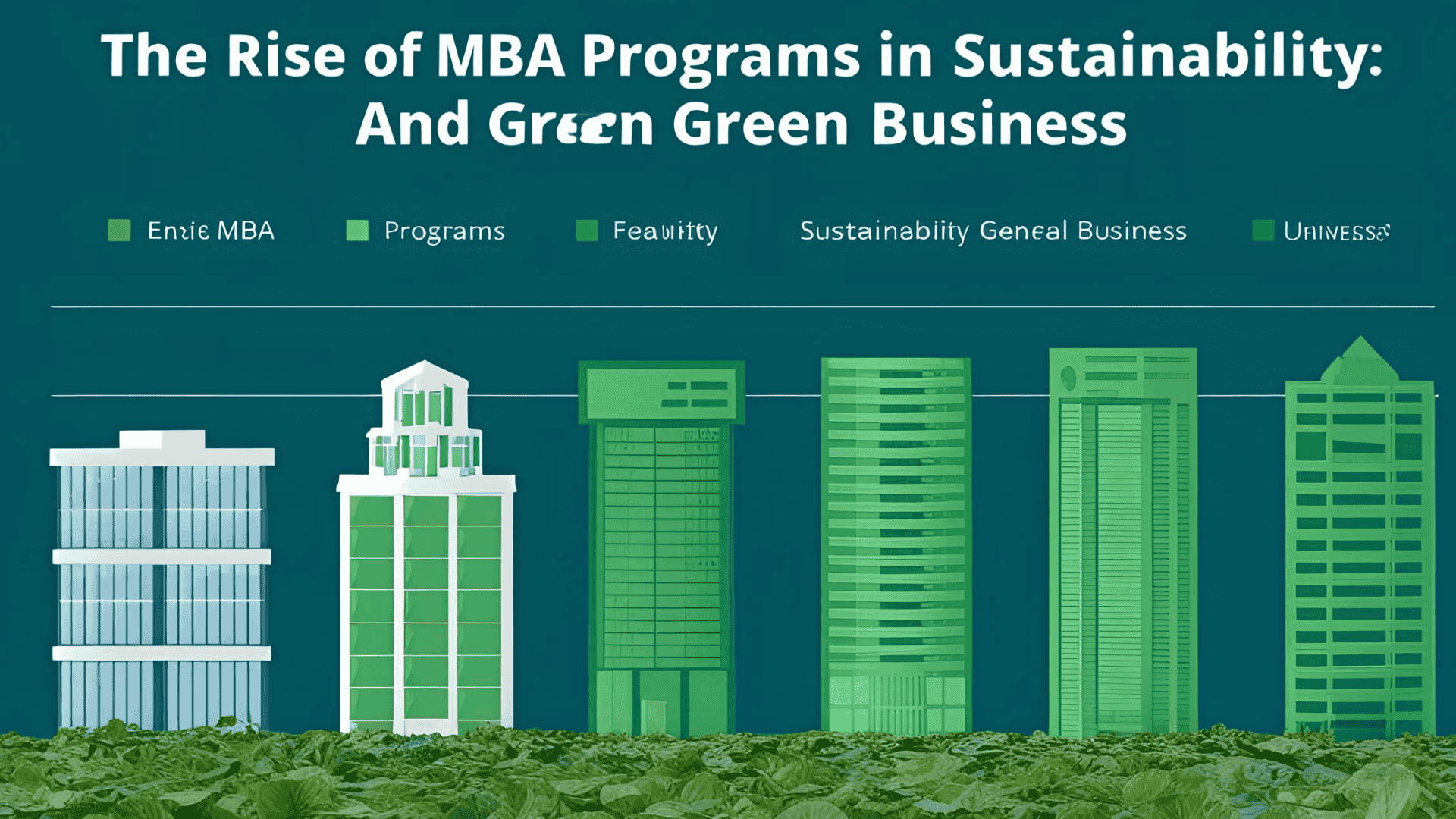Address
Fun Rush, [Erode], India
Work Hours
Monday to Friday: 7AM - 7PM


As businesses face increasing pressure to adopt sustainable practices, the demand for professionals skilled in sustainability and green business has surged. MBA programs have evolved to include specializations that focus on environmental responsibility, corporate social governance (CSR), and ethical leadership. An MBA in Sustainability prepares future leaders to balance profitability with social and environmental impact. This blog explores the rise of sustainability-focused MBA programs and their role in shaping the future of business.
Sustainability is no longer a niche concern—it is a key driver of business success. Companies are adopting green initiatives to meet regulatory requirements, enhance brand reputation, and gain a competitive edge.
1. Corporate Social Responsibility (CSR)
An increasing number of organizations recognize the importance of CSR in maintaining public trust. MBA graduates with expertise in sustainability help businesses design and implement responsible policies that align with global environmental goals.
2. Financial and Regulatory Incentives
Businesses that adopt green practices can benefit from tax incentives, government grants, and investment from sustainability-focused venture capitalists. An MBA in Finance with a sustainability focus helps professionals navigate the financial aspects of green business.
3. Consumer Demand for Ethical Business Practices
Modern consumers prefer brands that prioritize sustainability. Companies with transparent, eco-friendly practices attract loyal customers and stand out in competitive markets. An MBA in Marketing with sustainability expertise enables businesses to communicate their green initiatives effectively.
MBA Colleges worldwide are incorporating sustainability into their curricula to meet the growing demand for environmentally conscious business leaders.
1. Specialized Courses and Certifications
Programs now include courses on renewable energy management, circular economy principles, and environmental impact assessment. Certifications in sustainability reporting and green finance are also becoming popular additions to MBA programs.
2. Hands-on Learning and Industry Collaboration
Many MBA programs offer partnerships with companies working on sustainability initiatives, giving students real-world experience in solving environmental challenges.
3. Integration with Traditional MBA Specializations
Sustainability is not a standalone concept—it integrates seamlessly with traditional fields such as MBA in Business Analytics, MBA in Human Resources, and MBA in Operations Management, ensuring that graduates can apply green strategies across industries.
Graduates with an MBA in Sustainability can pursue high-paying and impactful careers in various industries, including:
The rise of sustainability-focused MBA programs reflects the growing importance of ethical and environmentally responsible business practices. Whether you are pursuing an MBA in Finance, MBA in Marketing, MBA in Business Analytics, MBA in Human Resources, or MBA in Operations Management, integrating sustainability into your career can lead to meaningful impact and financial success. As businesses continue to prioritize green initiatives, professionals with expertise in sustainability will be at the forefront of shaping a better future.